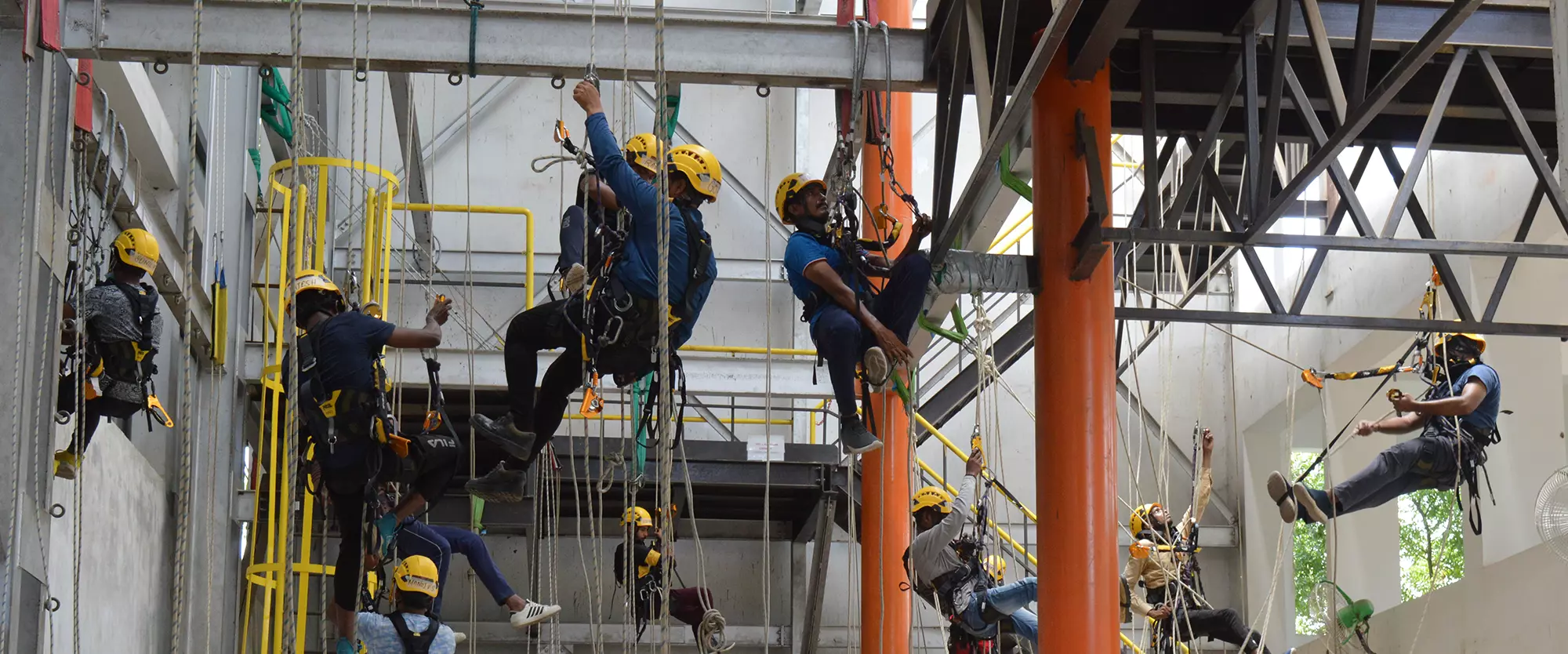
What Is Rope Access?
Industrial rope access is a specialist work site access method, initially developed from techniques used in mountaineering and caving. It is an efficient and versatile system that can be applied to gain safe access to areas of almost any structure. It is recognized as a viable alternative to traditional access system such as scaffold, gondolas, and work platforms. IRATA compliant rope access systems are statistically the safest height access system internationally.
Rope Access at Global Remote
Global Remote employs the Industrial Rope Access Trade Association (IRATA) rope systems in all our ISO regulated rope access operations. The IRATA systems have an exemplary safety standard globally, based on a commitment to thorough training, stringent supervision, exacting equipment standards and diligent operating procedures. As an active member of IRATA, Global Remote upholds the exacting quality and safety standards demanded by this peak international association, ensuring our services to all our clients are industry best practice.
Rope Access Training
Global Remote is a specialist provider of height safety training and consultancy, catering to the energy, civil, marine and geotechnical sectors. As accredited trainers, we offer the syllabus of the Industrial Rope Access Trade Association (IRATA) approved industrial rope access courses. Global Remote offers a comprehensive 6-day training course, plus an additional day of assessment. This ensures the delivery of additional syllabus items, going beyond what is required by IRATA, providing candidates with an unprecedented learning experience in the region.
Strategically based in India and the United Arab Emirates, we offer our full training portfolio from our purpose built facilities in Chennai and Abu Dhabi, or alternatively at a client’s preferred location nationally or internationally, providing that compliance with the IRATA guidelines can be met. Our programmes are compliant with the strict guidelines as set out by IRATA, the British Health and Safety Executive (HSE), and the British Advisory Committee for Work at Height Training (ACWAHT) syllabus. There is a growing worldwide demand for IRATA qualified riggers, non-destructive testing (NDT) inspectors, welders, painters and blasters. An IRATA certification can improve your employment potential, and by complementing existing industrial qualifications, increase your employment opportunities internationally.
IRATA Certification Levels
There are three generally recognized certification levels for rope access training, each with different content and criteria.
-
- Level 1: This course is an introduction to the IRATA Industrial Rope Access system. Applicants must be a minimum of 18 years of age, possess suitable aptitude for work at height, and be physically fit. Successful candidates are capable of performing various work tasks under the supervision of an IRATA level three.
- Level 2: This course is intended for candidates who hold an IRATA approved Level One certificate, a minimum of 12 months work experience, and 1,000 logged hours of work. A level two technician is capable of rigging working ropes, undertaking rescues, and performing various work tasks under the supervision of an IRATA level three.
- Level 3: This course is intended for candidates who hold an IRATA approved Level Two certificate, a minimum of 12 months work experience, and 1,000 logged hours of work. A level three technician is capable of all rigging requirements, supervising personnel and managing projects, having a thorough understanding of industrial rope systems.
Learn more about Global Remote IRATA training programs.